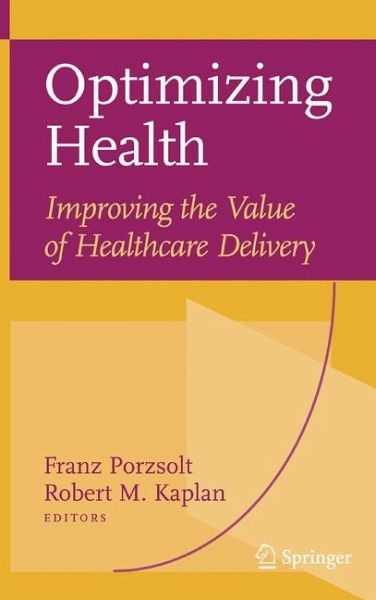Should we change anything to give our patients more of what they want?
Do we even know what they want?
When service delivery, patient expectations, and the bottom line are in conflict, quality generally suffers. But such conflict can be minimized, say the editors of Optimizing Health.
Answering elusive questions on how quality emerges in medical care, Franz Porzsolt and Robert Kaplan synthesize findings from closely interrelated aspects of clinical practice, clinical epidemiology, health economics, psychology, and ethics. The resulting systems perspective of this timely book merges thinking from clinical medicine and economics to form the hybrid term "CLINECS". The book challenges readers to rethink the standard criteria for assessing benefit to patients, and shows how evidence-based medicine can be incorporated into actual public health settings, clarifying key medical goals regarding patient autonomy. An international panel of experts offers practical, workable guidelines for:
-Understanding the value of services from the patient's point of view
-Involving patients in medical decision-making
-Avoiding overdiagnosis and overly aggressive treatment
-Reconciling outcomes research and clinical research
-Measuring patient quality of life-even for those who are cognitively impaired
-Improving efficacy and effectiveness throughout the system
Optimizing Health outlines an agenda of critical importance to health care professionals, researchers, and policymakers. This vision also makes it a bedrock graduate-level text for tomorrow's clinicians andadministrators. This is material that will be studied, discussed, debated, but most of all, benefited from.
Dieser Download kann aus rechtlichen Gründen nur mit Rechnungsadresse in A, B, BG, CY, CZ, D, DK, EW, E, FIN, F, GR, HR, H, IRL, I, LT, L, LR, M, NL, PL, P, R, S, SLO, SK ausgeliefert werden.
Hinweis: Dieser Artikel kann nur an eine deutsche Lieferadresse ausgeliefert werden.









